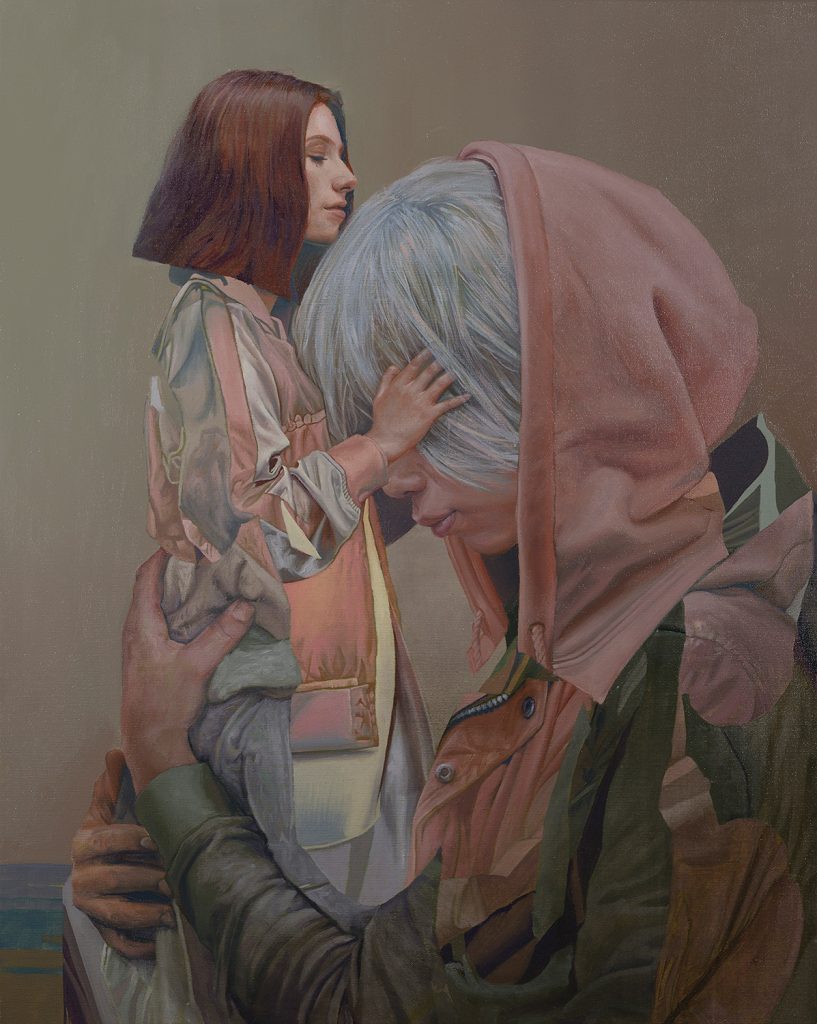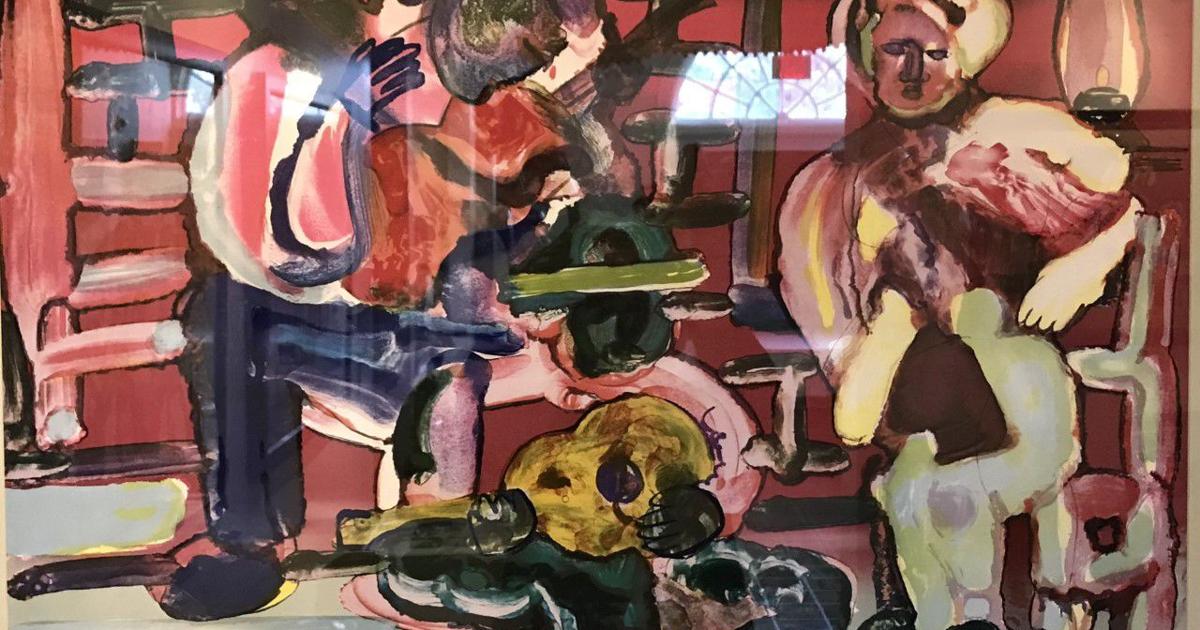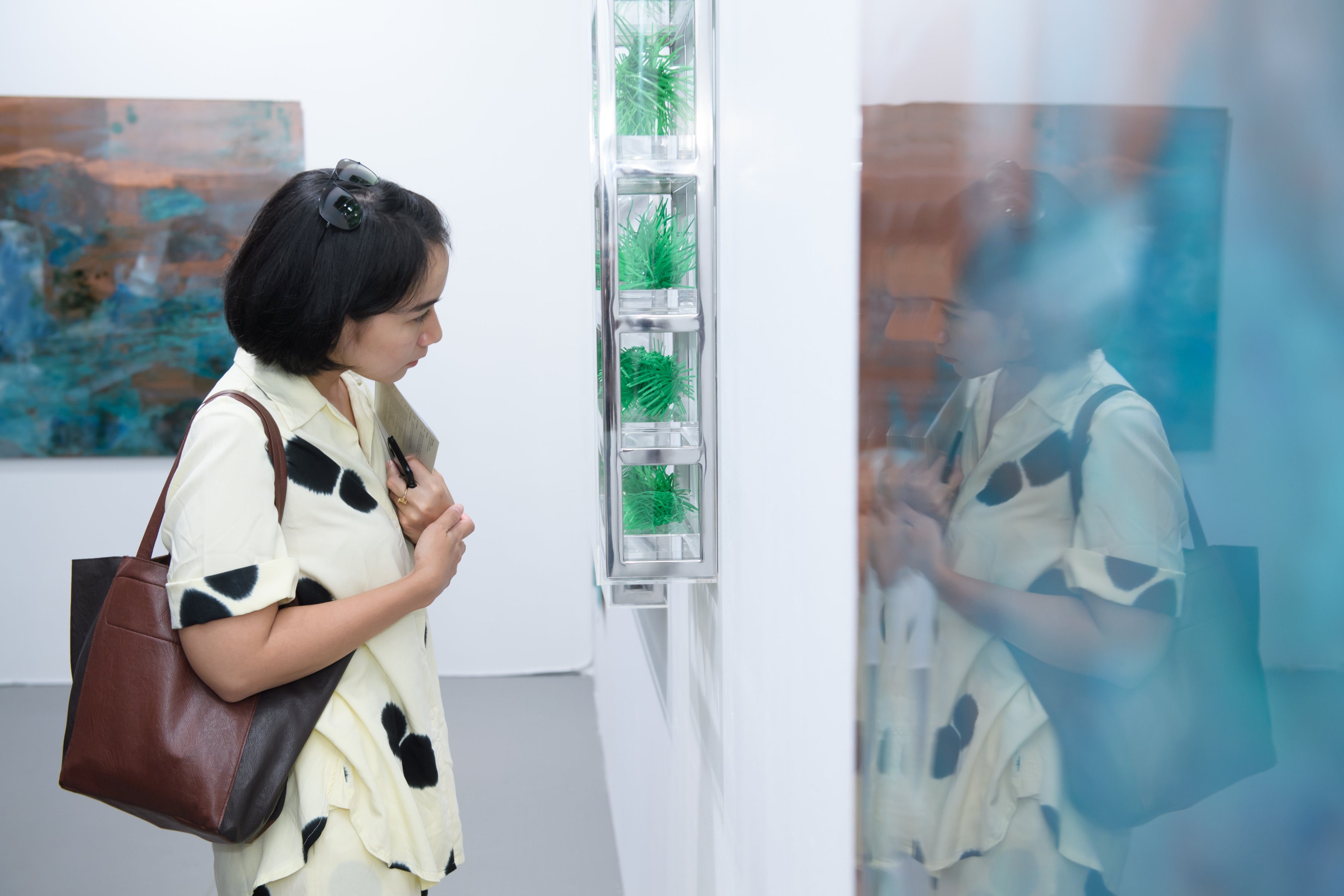Memory of the Blind Elephant
2016 - Film & Video (Film & Video)
<span data-sheets-value="{"1":2,"2":"14:22 minutes"}" data-sheets-userformat="{"2":15297,"3":{"1":0},"9":0,"10":1,"11":0,"12":0,"14":{"1":2,"2":0},"15":"Calibri","16":9}" style="font-size:9pt;font-family:Calibri, Arial;">14:22 minutes</span>
Nguyen Phuong Linh
Set in the haunting space of an ex-colonial rubber plantation in Central Vietnam, Phuong Linh Nguyen’s film Memory of the Blind Elephant is a tender portrait of the complex economies of interspecies trauma and resilience in the face of continued extraction and destruction. Formerly present in the coronation of Potau Apui (the Jarai King of Fire), in Dr. Yersin’s exploratory crew during the colonial period, and now a major draw for tourists, the figure of the elephant is ailing, grievous, as though haunting its habitat. Intrigued by the reality she observed, Phuong Linh gathered, documented, altered, repositioned the local materials of ceaseless exploitation of natural resources: raw rubber, ferrosols, and aluminium to assert a critical proposition.
Phuong Linh Nguyen’s multidisciplinary practice spans video, sculpture and installation. Her practice is concerned with geographic cultural shifts, traditional roots, and the splintered history of Vietnam. Tracing a complex network of ethnicities, religions, and cultural and geo-political influences. Her works contemplate visible versus invisible truths, form and time, and conveys a pervasive sense of alienation, dislocation, and the ephemeral. Nguyen Phuong Linh often travels for field research and to collect artifacts from historical sites of exchange. She transforms these materials in order to construct alternative perspectives and interpretations of fragmented histories, personal narratives, and memories.
Colors:
Related works sharing similar palette
» see more
Related artist(s) to: Nguyen Phuong Linh » Adriano Pedrosa, » Akram Zaatari, » Asli çavuşoğlu, » Clara Ianni, » Daniela Ortiz, » Dumaguete City, » Emily Jacir, » Hemali Bhuta, » Kiluanji Kia Henda, » Latin America
» see more

© » KADIST
Kiluanji Kia Henda
2011Redefining The Power (with Didi Fernandes) is a metaphor of how reflections on history and society during the Angolan Civil War (1975-2002) are largely ignored within the canon of history...

© » KADIST
Daniela Ortiz
2012In her work, Maids Room (2012) which is part of a series, Daniela Ortiz undertakes an architectural analysis of the houses belonging to the upper class of Lima...

© » KADIST
Akram Zaatari
1950“In the 1980s I started using coloured paper backdrops, one of which was yellow...

© » KADIST
Asli Çavusoglu
2020In the exhibition Pink as a Cabbage / Green as an Onion / Blue as an Orange , Asli Çavusoglu pursues her work on color to delve into an investigation into alternative agricultural systems and natural dyes made with fruits, vegetables, and plants cultivated by the farming initiatives she has been in touch with...








